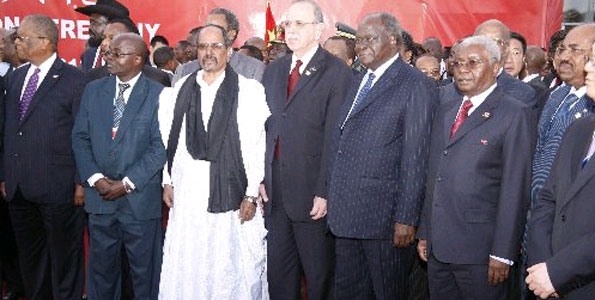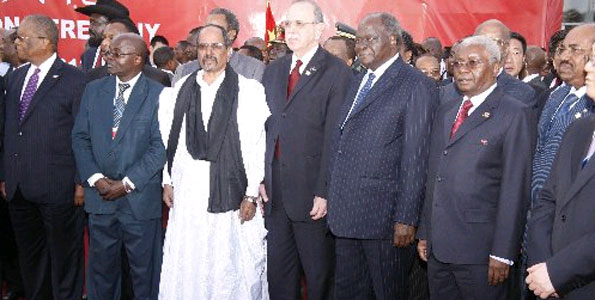
UN Secretary-General Ban Ki-moon has expressed his “support” for the work of Libya’s government according to a UN statement issued on Sunday. He “commended” the prime minister on the public consultation process for the new electoral law and “reaffirmed the commitment of the United Nations, particularly through the U.N. Support Mission in Libya, to continue to provide support in the areas of elections, security, human rights and transitional justice as requested by the authorities”.
The statement followed his meeting with Libyan Prime Minister Abderrahim Al-Kib on the sidelines of the African Union summit in Addis Ababa, Ethiopia. The summit ends on Monday.
The two reportedly discussed security in Libya as well as plans “to improve conditions of detention,” the statement said.
In recent days, Libya has been accused of torturing detainees.
The human rights group Amnesty International last week said several had died as a result of torture and, on Thursday, Medecins Sans Frontieres (MSF) announced a halt to its work in detention centers in Misrata. This was because, it claimed, detainees were being “tortured and denied urgent medical care.”
MSF said it had treated 115 people with torture wounds from interrogation sessions. Two detainees had died, one in October and another in November, within 30 minutes of being interrogated, Christopher Stokes, MSF general director, said.
The UN’s own High Commissioner for Human Rights, Navi Pillay, has also expressed her concerns about Libyan detainees being tortured. In response to that, the Libyan ambassador to the UN, Mohammed Shalgham, announced on Wednesday that that Libya was working to try and stop such practices. On the same day Al-Kib also announced on television that plans were in hand for the reorganization of Libyan prisons.
Meanwhile, at the AU summit on Sunday al-Kib called on African countries to extradite members of Qaddafi regime. Saadi Qaddafi is in exile in Niger and his brothers Hannibal and Mohamed, along with sister Aisha and mother Safia, are in Algeria.
Al-Kib also called for a conference with interior and defense ministers from neighbouring countries to address the proliferation of weapons by exiled supporters of former dictator Muammar Qaddafi. There have been fears that Libyan weapons may have fallen into the hands of groups in the region such as al-Qaeda and Nigeria’s radical Boko Haram movement. Last Thursday, a UN report suggested this may be the case.
“(There is) still a real threat from some of the armed remnants of the former regime who escaped outside the country and still roam freely. This is a threat for us, for neighboring countries and our shared relations,” Al-Kib told the AU.
[/restrict]






